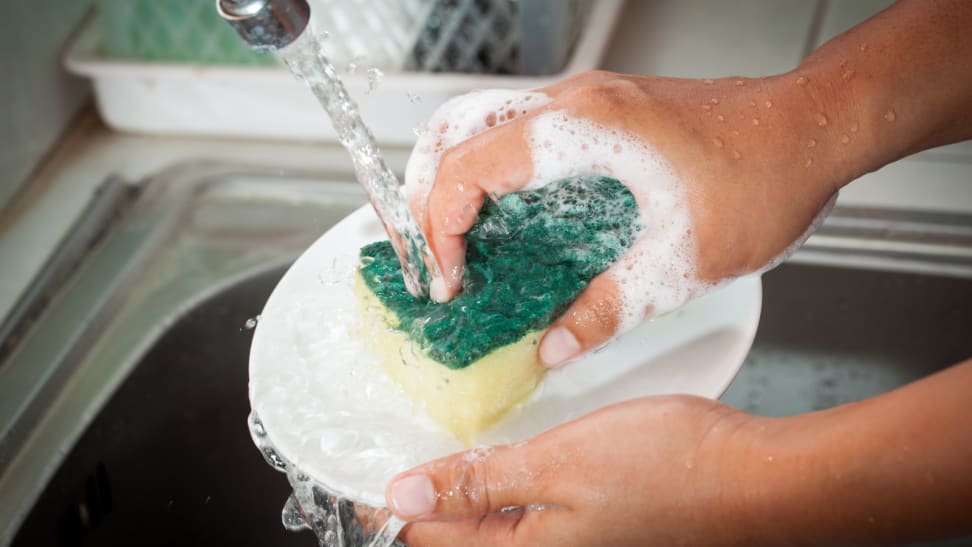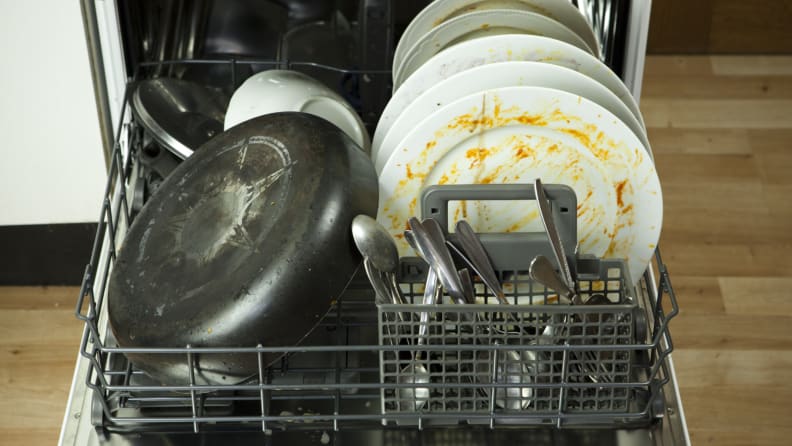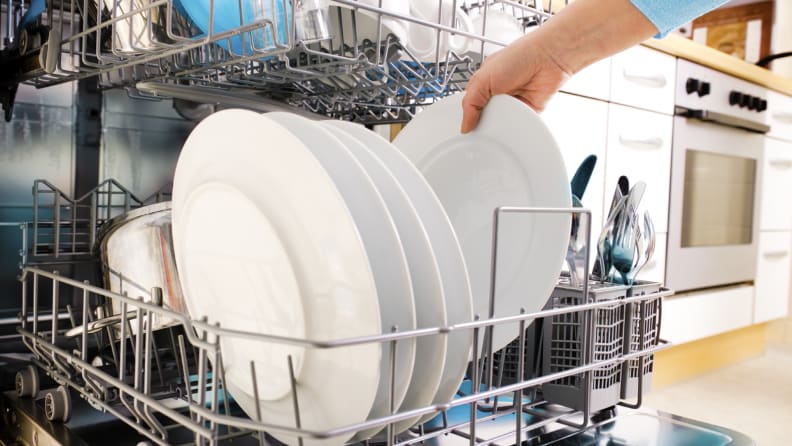Do you really need to rinse your dishes before putting them in the dishwasher?
Here's what the experts say.
 Credit:
Getty Images
Credit:
Getty Images
Recommendations are independently chosen by Reviewed's editors. Purchases made through the links below may earn us and our publishing partners a commission. Prices were accurate at the time this article was published but may change over time.
There are two types of people in this world: those who rinse their dishes before putting them in the dishwasher and those who don't. Everyone has an opinion on the subject—and it's about as divisive as the "over or under" toilet paper debate. Fortunately, experts are finally answering everyone's biggest dishwashing question once and for all.
You don't need to pre-rinse your dishes.
If you're a die-hard rinser like me, this may come as a shock—but the science (and logic) behind it is actually pretty convincing. Here's exactly why your plates and bowls can go straight from the table to the dishwasher, along with our experts' top tips on getting the cleanest dishes.
Why you shouldn't pre-rinse your dishes

Your dishwasher can handle more than you think.
To put it simply, it's a waste of time and water, our senior scientist, Julia MacDougall, explains. In fact, if you're spending more than a minute rinsing your dishes before putting them in the dishwasher, you're at least doubling the amount of water that's being used during the process. Yikes.
Besides the environmental impact, pre-washing won't do much (if anything) in terms of cleaning your dishes better, either. A scientist from Procter & Gamble explained to the Today Show that many newer dishwashers detect how dirty your plates are, and then adjust their power and time accordingly. So if you're putting in rinsed plates, your dishwasher thinks they're a lot cleaner than they really are and may not run as effectively or as long.
Is there ever a time when rinsing is okay?
There are exceptions to every rule—including rinsing your dishes. A.k.a there are some cases when a pre-wash is necessary, like if you're attempting to put a large or awkwardly-shaped dish in your dishwasher, Julia says. "It might be worth it to give a casserole dish or a stock pot a quick rinse, since you can't guarantee that the water jets in the dishwasher—which are optimized to be hitting and cleaning things like plates and bowls—will be as effective on something with a size/shape that might prevent it from benefiting from the dishwasher."
How to get cleaner dishes in your dishwasher

So sparkling, so clean.
Two words: rinse cycle. "People are often reluctant to just stick completely un-rinsed dishes in the dishwasher, especially if they're not going to get a cycle going right away because they think, correctly, that hardened food stains are more difficult to remove in the dishwasher," Julia explains. That's where the rinse cycle comes in—it's a quick 10 to 15 minute cycle that doesn't use detergent but simply rinses off your dishes. It's ideal for anyone who doesn't have enough dishes to warrant running the dishwasher but doesn't want the food to crust onto plates and bowls. Julia says, "Washing dishes by hand uses a lot more water whereas rinsing them in a cycle is very judicious about water use, even if it doesn't get them completely clean (since it's not trying to do so)."
Other common mistakes people make with their dishwasher is overcrowding it (don't try to jam in as many bowls and plates as possible!) or blocking the water jets (a.k.a. big stuff goes on the side, not on the bottom where it can cover the spray). You should also clean your dishwasher regularly to keep it running most effectively. Otherwise, food debris can build up in the filter and prevent water from draining which can lead to dirty dishes.



